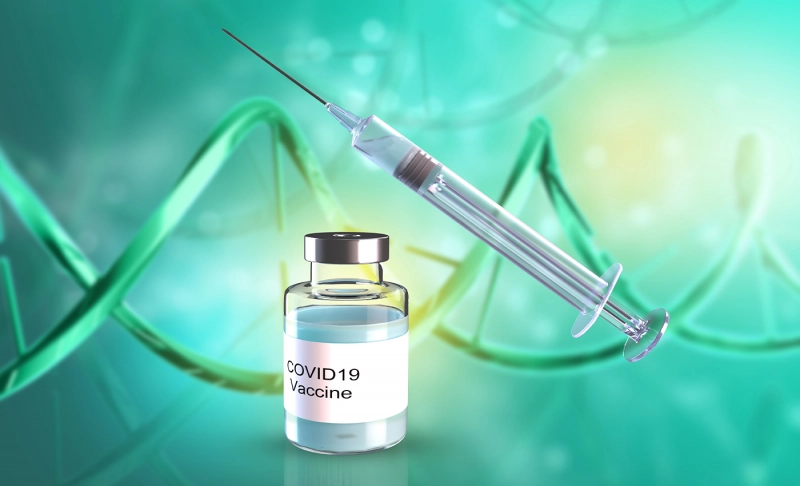By: Devika Kandelwal
January 13 2022

The COVID-19 vaccines help limit the spread of the disease and save us from severe illness.
On July 19, Tim Pool, an American citizen journalist, tweeted: "The COVID vaccine. Doesn’t stop you from getting COVID. Doesn’t stop you from getting sick from COVID. Doesn’t stop you from spreading COVID. They call that 'effective.'" This tweet was shared over 4k times on Twitter, and screenshots of the tweet were also widely posted on Facebook. One screenshot on Facebook has garnered over 3k views. Pool's claims are not novel; they have been made several times over the last few months by anti-vaxxers and people who do not understand how COVID-19 vaccines or vaccines in general work. Firstly, while COVID-19 vaccines do not stop you from getting the virus, no COVID-19 vaccine manufacturer has ever claimed that they do. Like all medicines, no vaccine is entirely effective, and some people may still get COVID-19 despite having had a vaccination, though the infection is likely to be less severe. This does not mean that COVID-19 vaccines are ineffective. It just means that it works like any other vaccine and medication and protects people against falling severely ill and against hospitalization. Vaccines stimulate a person’s immune system to create antibodies. These antibodies are specific against the vaccine's virus and allow the body to fight infection before it takes hold and causes severe disease. However, some people won’t have a strong enough immune response to the vaccine and may still be susceptible to developing COVID-19 if exposed to the virus. Secondly, while COVID-19 vaccines do not stop you from getting sick from COVID, this statement misses key context. According to the Centers for Disease Control and Prevention (CDC), vaccines can stop you from getting severely ill. According to the U.K. government, the Pfizer-BioNTech vaccine is 96 percent effective against hospitalization from the Delta variant (the most infectious coronavirus variant to date) after two doses, and the Oxford-AstraZeneca vaccine is 92 percent effective against hospitalization from Delta variant after two doses. According to Public Health England (PHE), the COVID-19 vaccination program has prevented 14,000 deaths and around 42,000 hospitalizations in older people in England up to May 30. Thirdly, though vaccinated people can transmit the virus, according to GAVI, early evidence suggests that vaccines are likely to reduce the chance of transmitting the virus to others substantially. In April this year, PHE released the results of a large study of COVID-19 transmission involving more than 365,000 households with a mix of vaccinated and unvaccinated members. It found that immunization with either the Pfizer or AstraZeneca vaccine reduced the chance of onward virus transmission by 40-60 percent. This means that if someone became infected after being vaccinated, they were only around half as likely to pass their infection on to others compared to infected people who weren’t vaccinated. Furthermore, a study conducted in Israel found that in nearly 5,000 cases of breakthrough infection (meaning people who got the virus after being vaccinated) in previously vaccinated people, when compared to unvaccinated people, the amount of virus detected was significantly lower in those who got vaccinated. In April 2021, the CDC tested volunteer health care personnel and other front-line workers at eight U.S. locations for SARS-CoV-2 infections weekly for three months, regardless of symptoms or vaccination status. The researchers found that fully immunized participants were 25 times less likely to test positive for COVID-19 than were those who were unvaccinated. COVID-19 vaccines are still relatively new, and we are learning more about them every day, but that does not mean they are not effective. In the last six months, they have proven to bring down the number of cases, hospitalizations, and deaths. They might not be 100 percent effective, but they are essential in keeping us and those around us safe. The COVID-19 pandemic has given rise to a lot of potentially dangerous misinformation. For reliable advice on COVID-19, including symptoms, prevention, and available treatment, please refer to the World Health Organization or your national healthcare authority.